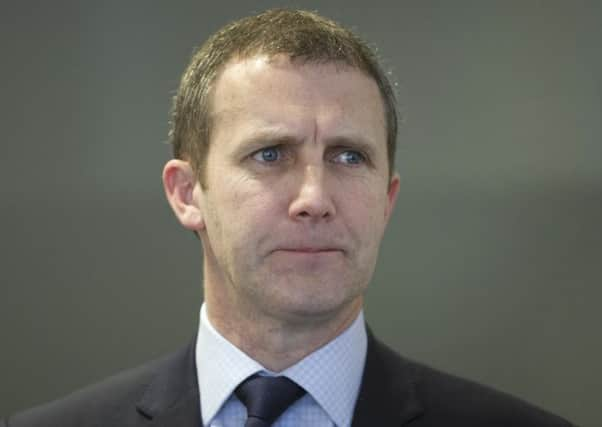Chris Marshall: A horrific murder threatens the SNP's justice reforms


The 31-year-old father-of-three was stabbed to death in Paisley last year by a man who had been “unlawfully at large” for five months.
James Wright, who had 16 previous convictions, including two for knife crimes, had breached the terms of a home detention curfew in February just 11 days after being released from prison.
Advertisement
Hide AdAdvertisement
Hide AdTwo separate reviews of home detention arrangements are now attempting to establish how someone in Wright’s position was able to take the life of a young father when he should have been back behind bars.
The case has raised serious questions about the continued used of detention curfews, where offenders are allowed to serve part of their sentence on licence while wearing an electronic tag.
Under legislation currently making its way through the Scottish Parliament, the Scottish Government plans to expand the use of tagging as an alternative to prison.
It’s a policy which has the backing of David Strang, the former chief inspector of prisons, and an ex-chief constable of Lothian and Borders Police.
Indeed, all the evidence shows that keeping people out of prison is the most effective way of reducing re-offending.
That’s why there is a broad consensus in criminal justice circles – although by no means at Holyrood – in favour of another Scottish Government policy: a presumption against prison sentences of less than 12 months.
But whatever the view of such policies, they can only work if an already sceptical public can have complete faith that dangerous and violent offenders are not free to walk the streets.
The failings that led to the murder of Mr McClelland undermine not only the case for home curfews but the whole modernising agenda, allowing critics to raise legitimate questions about its effectiveness.
Advertisement
Hide AdAdvertisement
Hide AdFigures published last week by the Scottish Conservatives show that of 1,434 individuals granted early release from prison in 2017/18, 261 were recalled after breaching the terms of their licence.
While there was no further detail on the nature of the original offences or of the reasons for the breaches, that figure is altogether too high.
HM Inspectorate of Constabulary in Scotland (HMICS), a police watchdog, has been tasked with carrying out a review of how officers are able to apprehend those who have breached the terms of their curfew.
It is hoped the independent assessment will provide recommendations to help address gaps in the current system as well as strengthen safeguards.
One of Humza Yousaf’s first acts in his new job as Justice Secretary was to amend the review’s terms of reference to allow it to look at the powers available to Police Scotland when an individual remains “unlawfully at large”.
While prison should always be the punishment for the most serious of offenders, we need new approaches to stop others being stuck in its revolving door.
But the importance of rehabilitation cannot be put above the need for public safety.
Before we extend the use of detention curfews, we need to know they work for all of us, not just offenders.
